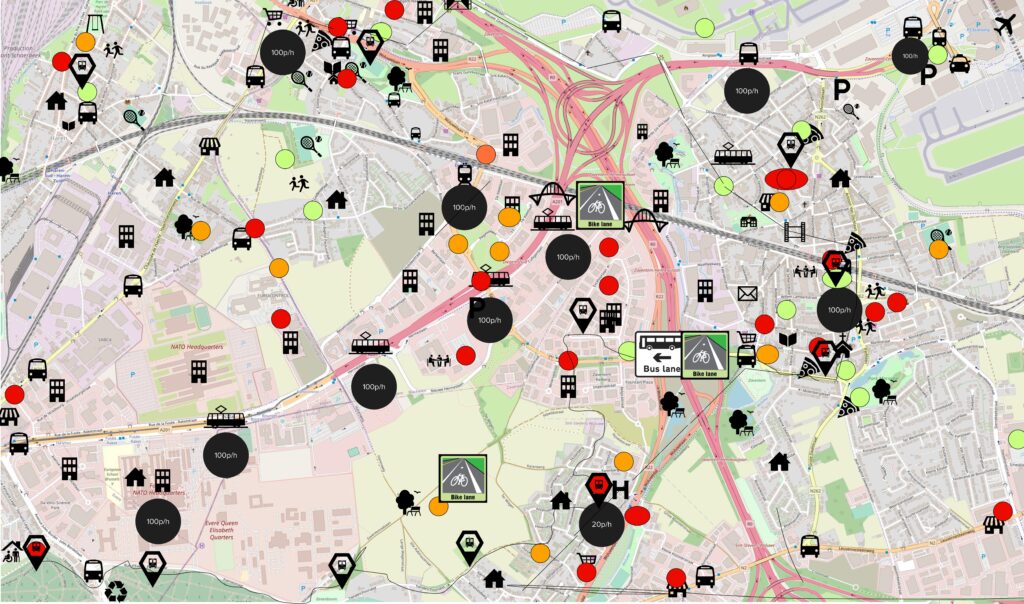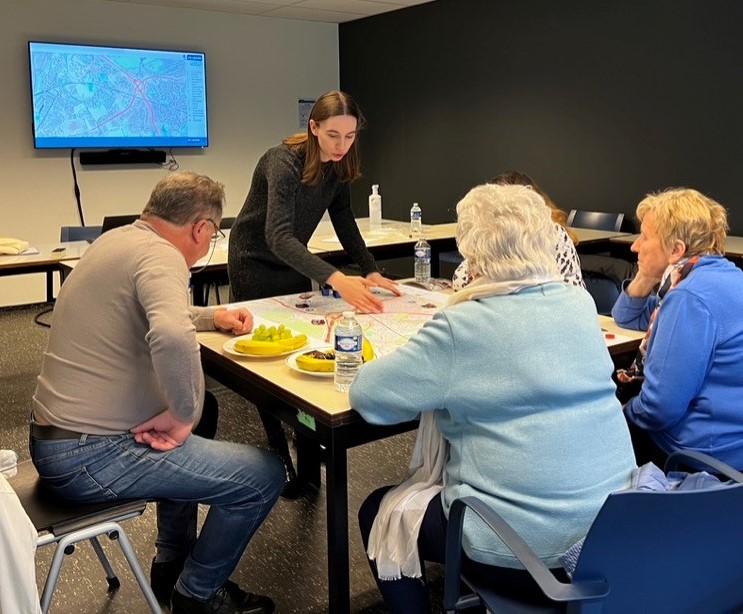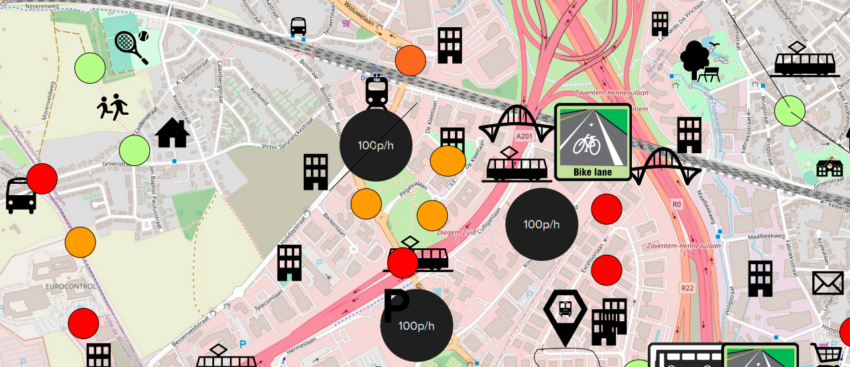A Serious Game can be understood as a game with a different purpose than pure entertainment. In our CATAPULT project, we aimed at making a Serious Game as a tool to co-create inclusive and accessible automated mobility solutions. We developed an online and a physical version of the Serious Game that have been tested and refined over the last months. We now want to take you on the journey of this process.
The CATAPULT Serious Game is named “A shuttle for everyone” and supports collaboration and storytelling. The Serious Game allows to identify future needs of senior citizens, children, and people with physical impairments, to anticipate barriers, and to find ideas for solutions when automated shuttles are implemented in a specific context.
In the CATAPULT project, “A shuttle for everyone” is a tool to:
- collect data on needs, wishes as well as challenges regarding automated mobility services;
- co-creatively develop new inclusive automated mobility solutions, taking into account the spatial context as well as the needs and requirements of potential end users by bringing them together with relevant practitioners and finally
- raise awareness on accessibility and inclusivity in the mobility system amongst the people playing
In the first online test version of the Serious Game urban planners, developers and mobility service providers collaboratively designed a new automated mobility service for the Nordraand region, Belgium. The conceptual design of the game was based on a literature review, interviews and surveys amongst the above mentioned experts and our targeted user groups: senior citizens, children and people with physical impairments. The online Serious Game has two rounds and its board includes the depiction of destinations (hospital, schools, sports facilities, etc.) and multimodal transfer points (e.g. train, tram, bus stations, and airport). The prototype of the CATAPULT Serious Game visualized the Nordraand region located at the northern border of Brussels, Belgium on OpenStreetMap. In the first round of the online Serious Game, places of interest (e.g. schools, doctor’s offices, cultural institutions), sights and event locations are discussed and marked on the map. The second round consists of finding a route for the automated shuttle, considering the expected needs of the different user groups. The Serious Game enables negotiations between different stakeholders (mobility operators, builders, contractors, urban planners, public officials, etc.) involved in planning, building, and operating automated shuttle routes and stops. These negotiations are based on the costs and operational feasibility of the automated shuttle project. The results from the online version are potential routes and stops of the shuttle. These results were used to build the scenarios for the physical board game.

The physical board game has different versions. The first prototype version was played with senior citizens and people with physical impairments. We started by showing the players the map of the Noordrand region with the places of interest, the proposed routes and stops from the online game, and asked them if they had suggestions for changes. These suggestions had to remain within the budget and feasibility constraints, e.g. another station can be selected to connect with the city fast ring bus, but it is not possible to add stations. For the first round, each player received a numbered shuttle, representing their vehicle-token for the trip. Their point of departure was Zaventem station. Then they took turns and randomly selected a destination card. They had to imagine and narrate a “perfect trip”, assuming for example that the automated shuttle has empty seats, drives smoothly and arrives at each bus stop at the scheduled time. Under this scenario, the player is asked to think about their experience and needs when waiting, entering the shuttle, during the trip and when getting off the shuttle. While each player in our test run talked about their experience, the facilitator wrote down feeling cards to describe the sentiment of the players during the different stages of the trip. Again, each player identified challenges and needs while narrating the trip. The facilitator stimulated the group discussion by asking what could help to resolve the problems. For the second round, the players selected a challenge card. This card describes a challenge they could face on their trip back to Zaventem, e.g. the bus is crowded.
The third and last version was played with mobility experts, faculty and students attending the CATAPULT mid-term conference (that took place on April 24th in Leuven, Belgium – read all about it here) and aimed at awareness raising. In this version, the players had to throw a dice, take the perspective of a senior citizen, child or person with physical impairment, and provide a solution to the challenge raised by the facilitator, to advance on the board. Other players could comment on the answer in order to discuss the challenge and the proposed solutions in a collaborative manner. The player that finishes the circuit marked on the board first, wins.

In the second year of CATAPULT, we will use our knowledge to further improve the Serious Game and define guidelines on how to transfer the game to different geographic areas as well as different issues in the context of spatial planning. For this purpose, the Serious Game will also be adapted for sessions in Austria and Sweden, considering local mobility challenges and different target groups.

